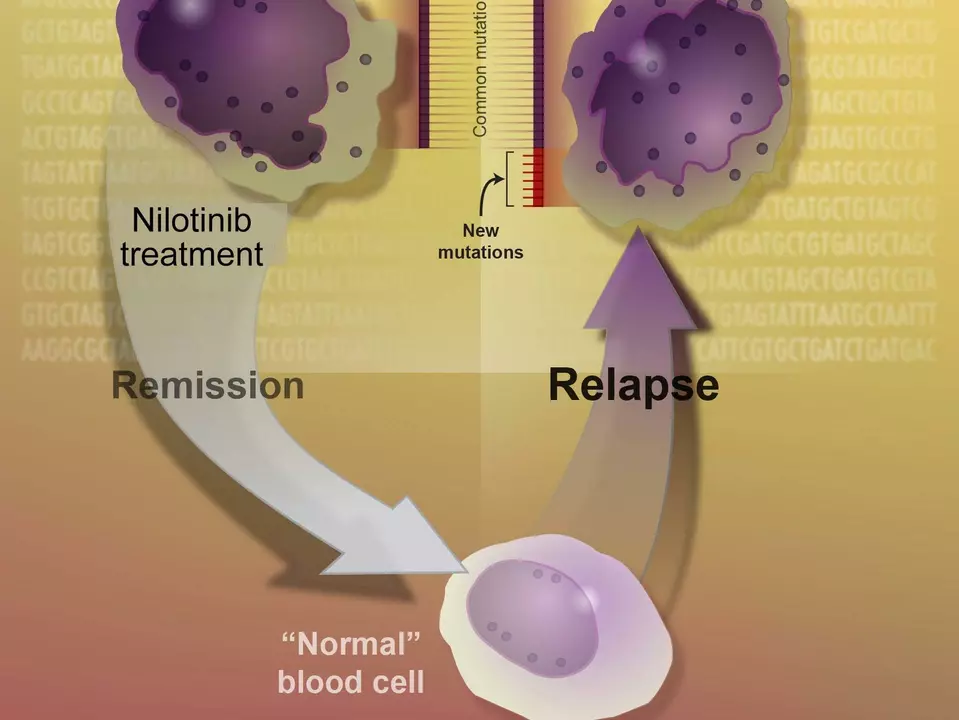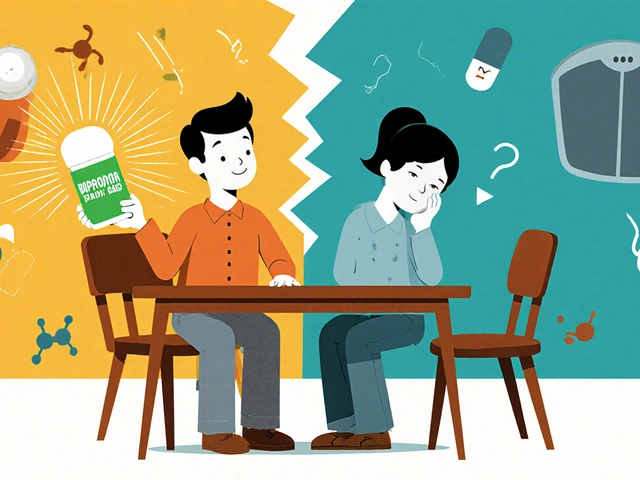Understanding Chronic Myeloid Leukemia (CML)
Before diving into the role of Nilotinib in the treatment of Chronic Myeloid Leukemia (CML), it's important to understand what CML is and how it affects the body. CML is a type of cancer that starts in the blood-forming cells of the bone marrow and eventually spreads to the blood. It is a slow-growing form of leukemia, which means that it develops gradually over time. The disease primarily affects older adults, but it can occur in people of any age.
When a person has CML, their bone marrow produces too many white blood cells called granulocytes. These abnormal cells don't function properly and can crowd out healthy blood cells, leading to a weakened immune system, anemia, and other complications. CML is caused by a genetic mutation called the Philadelphia chromosome, which results in the creation of an abnormal protein called BCR-ABL. This protein is responsible for the excessive production of white blood cells in CML patients.
Introduction to Nilotinib
Nilotinib is a targeted therapy drug that has been designed specifically to treat CML. It belongs to a class of drugs called tyrosine kinase inhibitors (TKIs) that work by blocking the action of the BCR-ABL protein, which is responsible for the overproduction of white blood cells in people with CML. By blocking this protein, Nilotinib can help to slow down the growth of cancer cells and even eliminate them in some cases.
Nilotinib was approved by the U.S. Food and Drug Administration (FDA) in 2007 for the treatment of CML patients who are resistant or intolerant to the first-line TKI therapy, Imatinib. Since then, it has become a vital tool in the fight against CML, especially for those who have not achieved optimal results with other treatments.
How Nilotinib Works in Treating CML
The main goal of Nilotinib treatment in CML patients is to target and inhibit the BCR-ABL protein, which is the driving force behind the overproduction of white blood cells. By blocking the action of this protein, Nilotinib can help to reduce the number of abnormal cells in the blood and bone marrow, allowing healthy cells to grow and function more effectively.
As a second-generation TKI, Nilotinib has been designed to be more potent and selective in its action against BCR-ABL than its predecessor, Imatinib. This means that it can be more effective in treating CML, particularly in cases where Imatinib has not produced the desired results or has caused intolerable side effects.
When is Nilotinib Used in CML Treatment?
Nilotinib is typically used as a second-line treatment for CML patients who have not responded well to first-line therapy with Imatinib or who have experienced significant side effects from the drug. In some cases, it may also be used as a first-line treatment option for newly diagnosed CML patients, particularly those with a higher risk of disease progression.
It's important to note that Nilotinib is not a cure for CML, but it can help to manage the disease and improve the quality of life for many patients. In some cases, patients may achieve a deep molecular response, which means that the levels of the BCR-ABL protein in their blood have dropped significantly. This can lead to a longer period of disease control and, in some cases, a treatment-free remission.
Side Effects of Nilotinib
As with all medications, Nilotinib can cause side effects, and it's important to be aware of these before starting treatment. Some of the most common side effects associated with Nilotinib include nausea, vomiting, diarrhea, headache, rash, and fatigue. In most cases, these side effects are manageable and can be treated with appropriate supportive care.
However, Nilotinib can also cause more serious side effects, including a risk of developing a potentially life-threatening heart condition called QT prolongation. This is why it's essential for patients receiving Nilotinib treatment to have regular heart monitoring and to discuss any concerns with their healthcare team.
Monitoring and Managing CML During Nilotinib Treatment
While receiving Nilotinib treatment, it's crucial for CML patients to undergo regular monitoring to assess their response to the drug and to ensure that any side effects are managed effectively. This may include blood tests to measure the levels of the BCR-ABL protein, as well as tests to monitor heart function.
Working closely with their healthcare team, patients can take steps to manage their CML and maintain a good quality of life during Nilotinib treatment. This may involve making lifestyle changes, such as adopting a healthy diet and exercise routine, as well as staying informed about their condition and treatment options.







Richa Shukla
14 May 2023 - 07:18 AM
I swear this whole Nilotinib thing is just Big Pharma pushing pills to keep us hooked. They don't want us cured, they want us on lifelong meds. I read a guy on Reddit who went off it and his cancer just... vanished. No joke. They're hiding the truth. 🤔
Chris Rowe
15 May 2023 - 06:13 AM
so nilotinib is just imatinib but with a fancy name and a higher price tag? cool. 🤡
Sushmita S
16 May 2023 - 12:37 PM
i took this for 6 months and my hair fell out like a bad wig commercial 😭 but at least my blood counts improved... so... idk? 🤷♀️
AnneMarie Carroll
17 May 2023 - 01:35 AM
You people are so naive. Nilotinib doesn't 'manage' CML - it just delays the inevitable while racking up $15,000 monthly bills. The real cure is in bone marrow transplants, but hospitals won't tell you that because they make more money keeping you on pills. I'm a nurse. I've seen it. Don't fall for the marketing.
John K
17 May 2023 - 15:30 PM
USA makes the best cancer drugs. If you're not on Nilotinib, you're basically choosing to die. 🇺🇸💪
Laura Anderson
18 May 2023 - 16:45 PM
The philosophical irony here is that we've engineered a molecular solution to a systemic problem - we attack the BCR-ABL protein as if it were the enemy, when in truth, it's the symptom of a deeper biological dissonance. Our bodies don't malfunction randomly; they respond to environmental, emotional, and epigenetic stressors. Nilotinib silences the signal, but does nothing to heal the source. We treat cancer like a glitch in code, not a cry for balance. And yet... I'm still on it. Because what else is there?
Avis Gilmer-McAlexander
20 May 2023 - 08:32 AM
I’ve been on Nilotinib for 4 years. It’s not perfect - I get weird heart palpitations, and my skin turns into a dry desert - but I’m alive. I hiked Machu Picchu last year. I danced at my niece’s wedding. I’m not cured, but I’m not dead. And honestly? That’s enough for now. 🌱